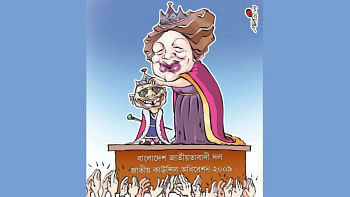Stop tobacco industry interference

Despite knowing the harm tobacco causes to human health for decades, the tobacco industry has energetically promoted tobacco sale. Dependency on tobacco is engineered, especially in the case of smoking, by carefully-prepared formulations of more than 1,000 chemicals and other ingredients. The tobacco industry markets a product that, unlike other legally sold goods, kills up to half of its regular users when consumed as per the directions of the manufacturer.
Tobacco kills by causing cancer, heart disease, stroke, respiratory diseases and by many other ways. The global tobacco epidemic kills nearly 6 million people each year, of which more than 600,000 are people exposed to second-hand smoke or passive smoke. Almost half of all children regularly breathe air polluted by tobacco smoke and more than 40% of children have at least one smoking parent. It also impinges economic burden by increasing huge cost of ailments related to tobacco.
The number of deaths will increase up to 8 million people by 2030, of which 4 out of 5 of these deaths occurring in low- and middle-income countries like Bangladesh. The World Health Organisation (WHO) has selected "tobacco industry interference" as the theme of the 2012 World No Tobacco Day, which was observed on May 31 this year.
Article 5.3 of the WHO FCTC urges countries to protect public health policies from commercial and other vested interests of the tobacco industry. In the recent years, the tobacco industries have been shamelessly fuelling its marketing by using tactics including: maneuvering to hijack the political and legislative process, exaggerating the economic importance of the tobacco industry, manipulating public opinion to gain the appearance of respectability, fabricating support through front groups, discrediting proven science, intimidating governments with litigation or the threat of litigation.
Experts from WHO urged national leaders and policy makers resist these tactics and use the full force of the convention to protect the hard won gains to safeguard people's health from the scourge of tobacco.
In line with article 5.3, countries can adopt other measures: limit interactions and disclose all meetings with the tobacco industry; reject partnerships and non-binding agreements with the industry; refuse funds and other support, and reject industry endorsement and participation in youth initiatives, etc.
WHO also said that countries should not grant incentives, privileges or benefits to the tobacco industry, such as subsidies or tax exemptions, and should create firewalls against the interference of the tobacco industry in public health, including state-owned tobacco companies.
WHO urged countries to put the fight against tobacco industry interference at the heart of their efforts to control the global tobacco epidemic. Let us resist the industry's attacks and create a tobacco-free world.

 For all latest news, follow The Daily Star's Google News channel.
For all latest news, follow The Daily Star's Google News channel. 



Comments